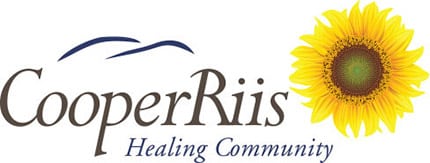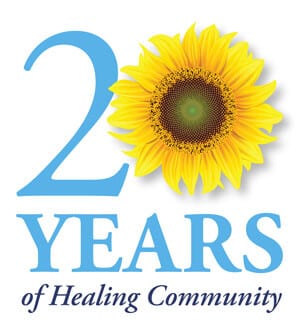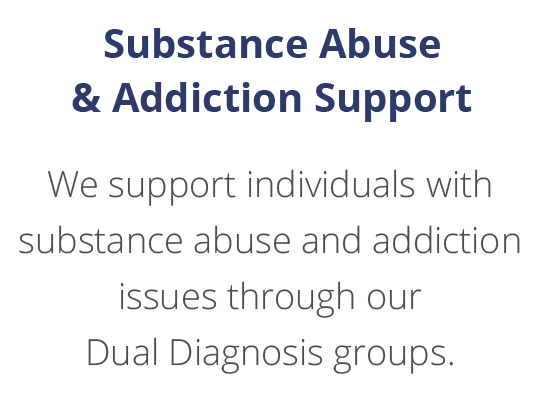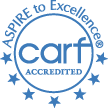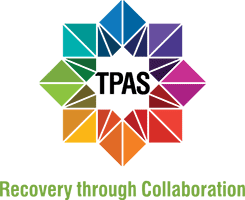Mental Health Treatment in a Community Setting
Our approach to clinical care is grounded in a supportive community with traditional psychotherapy and group therapies, along with optimized medication use and education to guide residents toward personal long-term care management. CooperRiis’ commitment to science-backed clinical care is combined with our Community Work & Service and Integrative Wellness Program to offer a unique recovery model built on our philosophy of mind and heart working together. For adults living with mental health conditions, CooperRiis offers a personalized path to reach mental wellness.
Resident’s Integrative Recovery Team
Each resident is welcomed by a caring Integrative Recovery Team who will support the resident and family throughout their recovery journey at CooperRiis. The team is led by a clinical director and includes the resident’s therapist, psychiatrist, recovery coordinator, community work and service program leaders, residential staff, and wellness staff. This connected and caring partnership helps empower the resident to take ownership of their own recovery.
As a first step at CooperRiis, a resident meets with their recovery coordinator to craft a personal Dream Statement, laying out hopes and dreams for the future. Throughout the recovery process, the Dream Statement serves as a roadmap to working toward valued life goals.
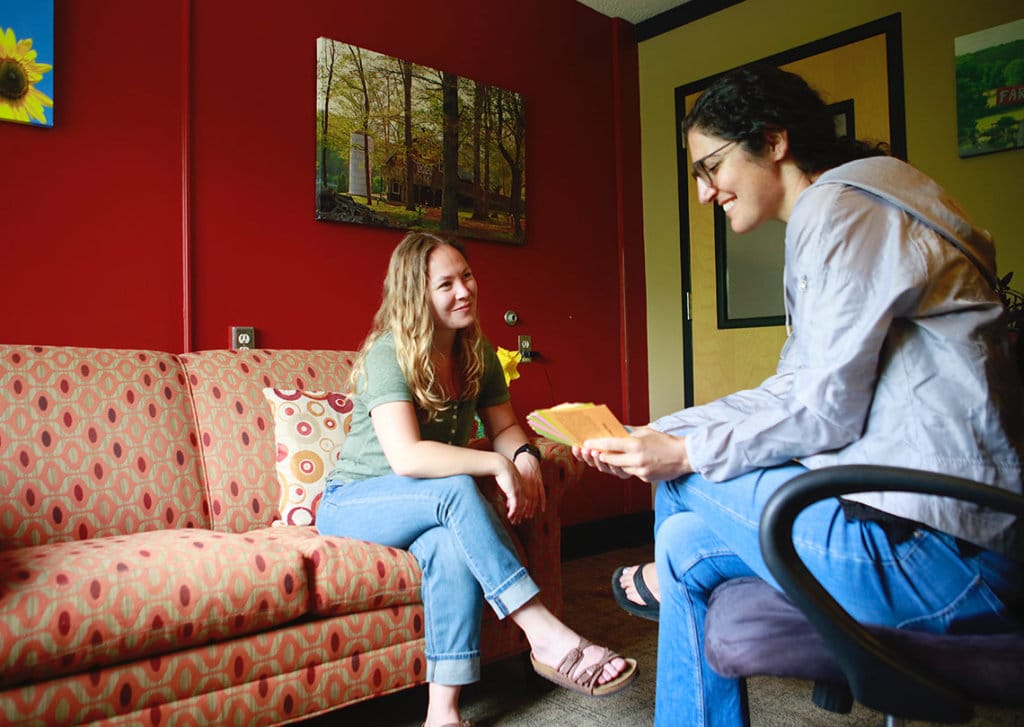
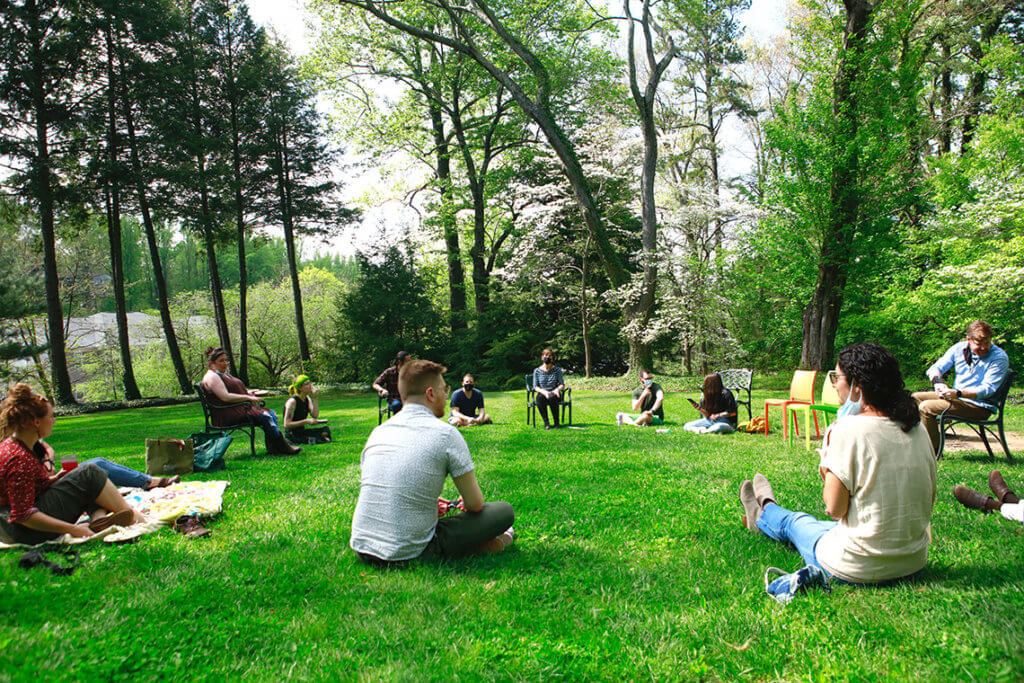
Individual & Group Therapies
Each resident is paired with a licensed therapist and meets formally for psychotherapy sessions at least once a week. These focused sessions may occur in an office or out in nature, enjoying the CooperRiis campus as a healing backdrop.
With the guidance of their Integrative Recovery Team, residents also engage in group therapy sessions, both general and specialized.
Medication
At CooperRiis, we believe in optimized medication use and education to guide residents toward personal long-term care management. It’s part of a personalized and comprehensive recovery roadmap. Combined with individual and group therapy, Community Work & Service, and Integrative Wellness Program, medicine can be lifesaving as well as life-supporting. We work with residents so they understand medication’s role in the overall care and recovery process.
A resident’s medications are reviewed upon admission and then regularly evaluated by a CooperRiis psychiatrist. To support self-monitoring and participation in treatment, residents receive written and verbal education and guidance on all medications.

Specialized Therapies
At CooperRiis, specialized therapies include:
Acceptance and Commitment Therapy (ACT)
- The goal of ACT is psychological flexibility, which is characterized by developing one’s ability to decide to do something (engage in action) because it is related to what is important to us (values) even in the presence of obstacles (acceptance). ACT involves learning how to separate our internal experiences (thoughts and emotions) from our actions in order to live life more fully.
Art Therapy
- Art therapy is designed to increase psychological wellness through experiential practices and forms of expression. The group supports stress reduction, nervous system, and mood regulation, as well as self-awareness and the processing of emotional health challenges in safe and structured environment.
Cognitive Behavioral Therapy (CBT)
- A solutions-oriented form of talk therapy that helps individuals challenge negative and distorted thinking and change destructive emotions and patterns of behaviors. CBT is the root modality at CooperRiis.
Continuing Recovery
- The continuing recovery group supports a non-judgmental, compassionate approach to understanding the challenges for someone who has a dual diagnosis, and other behaviors or patterns that have a negative effect on one’s life. The group takes a harm reduction approach for residents to learn about their relationship with their dual diagnosis and larger behavior patterns. The group empowers residents to make decisions based on clarity and understanding – with staff support on navigating larger goals on long-term abstinence. .
Dialectical Behavioral Therapy (DBT)
- Dialectical Behavioral Therapy (DBT) is an evidence-based mode of psychotherapy used to treat persons with challenges in emotion regulation, impulse control, psychological trauma, and those needing dual diagnosis supports. DBT integrates mindfulness practices and cognitive therapy with an emphasis on an accepting therapeutic relationship. These practices are designed to help individuals increase skills related to mindfulness, interpersonal effectiveness, management of distress and better regulation of emotions.
EMDR
- Eye Movement Desensitization and Reprocessing (EMDR) therapy is a very effective psychotherapy method proven to help people in their recovery of such mental health disorders as PTSD, anxiety & depression, and panic disorders as well as trauma and other distressing life experiences.
Horticulture Therapy
- The group engages in plant-based activities as a way of achieving therapeutic treatment goals. Direct contact with plants is believed to guide a person’s focus away from stress, enhancing their overall quality of life. Residents learn about plant biology, nutrition, urban farming, and hydroponic growing techniques. Residents are involved in all phases of gardening, from seeding and propagation to the harvesting of fresh produce for our kitchen; all as a means of bringing about improvement in their overall lives.
Life Skills
- Using the evidence-based Interactive Journaling® model, this group is designed to support individuals in developing practical life skills and making constructive choices. Through guided, self-reflective journaling and facilitated discussion individuals develop a personalized tool kit for positive living. The Life Skills Series includes four content areas. Content areas include:
- Daily life Skills – focuses on education and strategies for improvements in stress, nutrition, sleep habits, physical activity, and financial responsibility.
- Core Skills -helps individuals learn and practice positive life skills such as effective communication, handling risky situations and making responsible decisions.
- Healthy Relationships – focuses on reviewing communication skills, conflict resolution, the ripple effect of behaviors and the importance of doing no harm.
- Feelings – supports individuals in exploring the link between thoughts, feelings and behaviors, and learning strategies to manage feelings that can lead to undesired results.
Nonviolent Communication
- This group looks at the communication process that Dr. Marshall Rosenberg describes in his book titled, “Nonviolent Communication, A Language of Life”. We use this time to fortify our emotional intelligence and increase our awareness of the basic human needs and the strategies we use to meet these basic human needs.>
Relapse Prevention
- This group helps individuals with a dual diagnosis to clarify goals related to sobriety and to create an ongoing recovery plan which is integrated into the overall aftercare plan. Through psychoeducation, discussion, peer feedback and facilitated planning, individuals can gain a better understanding of the relapse process, factors that may increase the likelihood of relapse or harmful use, preventative activities and behaviors and the development of a support community.
Seeking Safety
- Seeking Safety is an evidence-based, coping skill approach for individuals who have a dual diagnosis and experience challenges related to trauma and emotion regulation as well as a broader range of mental health challenges. This is a present-focused therapy group designed to support individuals in developing coping skills relevant to attaining safety in their relationships, thinking, behavior and emotions. Seeking safety is beneficial for all members of the CooperRiis community, but especially for those individuals struggling with a dual diagnosis and or PTSD.
Small Group Process
- Each resident will be assigned to a small group which they attend daily during their time in the program. The group format includes a therapeutic topic, daily coping skill and open processing time. The small group provides a safe, accepting space for self-exploration, motivation and skill development, peer support and feedback and building a sense of connection.
Transition Planning
- Transition Planning offers the opportunity for residents to examine what they want in different areas of their lives while in treatment and after discharge. The group follows the 7 domains model and focuses most on residents’ emotional and psychological goals and needs. For transition planning, residents use the Wellness Recovery Action Plan (WRAP) model to recognize states of wellness and decline in wellness, as well as seek out and plan potentially needed support.
Wellness Recovery Action Plan® or WRAP®
- An evidence-based prevention and wellness tool that helps residents get well and stay well
Wellness Group
- The Wellness Group combines both individual and group wellness session to address the 7 Domains of Recovery. As a group, residents will engage in a variety of offered activities including neighborhood walks, group runs, basketball, yoga, meditation, or using the gym equipment. As individuals, residents will meet with the Integrative Health Director who provides education on all the domains of wellness in recovery including information on a wholefoods and anti-inflammatory diet, the anti-recovery health effects of sugar and processed foods, the role of exercise and mindfulness practices in recovery, and sleep hygiene. The Integrative Health Director will also organize experiential group activities including making tonics and tinctures, physical forms of self-soothing, and more.
